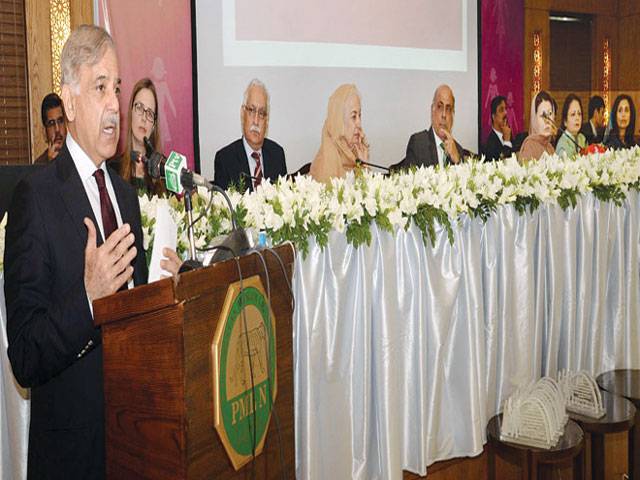LAHORE - The first ever Punjab Gender Parity Report and Punjab Gender Management Information System were launched yesterday at a ceremony attended by government officials, NGOs and women rights activists.
The Punjab Commission on the Status of Women and the Urban Unit co-hosted the launch with an objective to unveil the positive impacts of compilation of the Report and GMIS to promote gender equality and transparency in government’s steps related to legislation, policy and administration.
A large number of women working in various fields also attended the ceremony organised at a local hotel.
“The Punjab Gender Parity Report and GMIS will add to the already in place initiatives of the government taken to empower women,” said the chief guest, Minister for Women Development Hameeda Wahidudin.
Begum Zakia Shahnawaz appreciated the role of PCSW, saying: “No power in the world can undermine the role of women in progress and prosperity of a society. Awareness on how to seek legal help is vital as far as women empowerment is concerned.”
Addressing the participants, Dr Nasir Javed shed light on the GMIS which is a comprehensive database and information system that reflects the parity status for men and women, across six thematic areas, with analytical charts, graphs and maps.
“This system aims to revolutionise the lens through which gender-based issues are viewed - with core issues supported by data acquired through intensive primary and secondary research.
“More pleasing fact is that both these initiatives are launched on the occasion of International Women’s Day.”
A documentary was also screened on the launch based on the achievements of PCSW and its role in empowering women through various initiatives while extending support to women in distress and need across Punjab through policy making, legislation and capacity building exercises.
Fouzia Viqar said that the report provides a comprehensive analytical study of the status of women in Punjab for the first time. “It illustrates the socio-economic wellbeing of women, through an examination of about 300 indicators spanning all the significant areas of a woman’s life.
“The main thematic areas covered in the report include demographics and governance, health, education, economic cooperation and opportunities, legal rights and violence against women,” she added.
Friday, April 19, 2024
Punjab digs deep for gender parity

Pak economy improving, funds will be provided on request: IMF
9:57 PM | April 19, 2024
Minister advocates for IT growth with public-private collaboration
9:57 PM | April 19, 2024
Judges' letter: IHC seeks suggestions from all judges
9:55 PM | April 19, 2024
Formula 1 returns to China for Round 5
9:05 PM | April 19, 2024
Germany head coach Julian Nagelsmann extends contract till 2026 World Cup
9:00 PM | April 19, 2024
A Tense Neighbourhood
April 19, 2024
Dubai Underwater
April 19, 2024
X Debate Continues
April 19, 2024
Hepatitis Challenge
April 18, 2024
IMF Predictions
April 18, 2024
Kite tragedy
April 19, 2024
Discipline dilemma
April 19, 2024
Urgent plea
April 19, 2024
Justice denied
April 18, 2024
AI dilemmas unveiled
April 18, 2024
ePaper - Nawaiwaqt
Advertisement
Nawaiwaqt Group | Copyright © 2024





